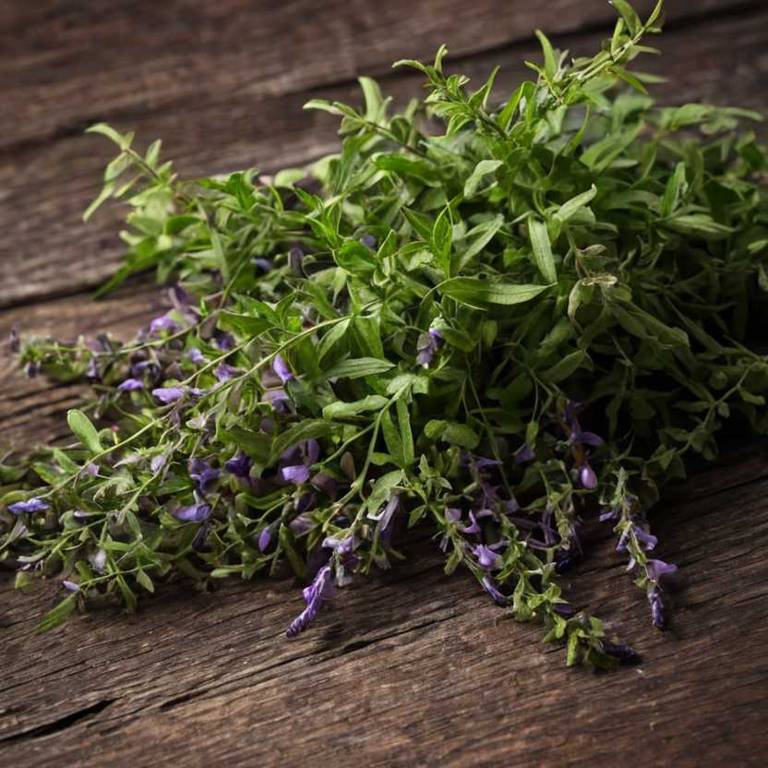Scutellaria (Scutellaria lateriflora)
Scutellaria (Scutellaria lateriflora) is a member of the Lamiaceae family, native to Eastern North America, United States, and Canada. Traditionally, its roots, leaves, and flowers have been used for infusions, decoctions, and tinctures.
This herb is particularly valued for its antispasmodic, sedative, and anti-inflammatory actions, and has a long history of use in native american herbal medicine, traditional chinese medicine, and european herbal medicine.

Quick Facts / Key Information
| Common Name | Scutellaria |
|---|---|
| Scientific Name | Scutellaria lateriflora |
| Plant Family | Lamiaceae |
| Genus | Scutellaria |
| Species | lateriflora |
| Native Range | Eastern North America, United States, Canada |
| Plant Parts Used | Roots, Leaves, Flowers |
| Primary Medicinal Actions | Antispasmodic, Sedative, Anti-Inflammatory |
| Primary Traditional Systems | Native American Herbal Medicine, Traditional Chinese Medicine, European Herbal Medicine |
| Historical Preparation Methods | Infusion, Decoction, Tincture |
Botanical Identity
- Scientific Name
- Scutellaria lateriflora
- Common Name
- Scutellaria
- Synonyms / Alternative Names
- Blue Skullcap, Blue Cohosh, American Skullcap
- Plant Family
- Lamiaceae
- Genus
- Scutellaria
Botanical Description
- Growth Habit
- Perennial herbaceous plant.
- Height
- It typically grows to a height of 30 to 60 centimeters.
- Leaves
- Ovate leaves with upper surface glabrous and darker green, lower surface lighter green and pubescent with stomatal bands.
- Flowers
- Bilaterally symmetric flowers with violet-blue petals, two-lipped corolla, four stamens, and a two-lobed stigma, arranged in whorls along the stem.
- Stems
- Erect growth habit, opposite branching, hairy surface, presence of nodes and internodes.
Traditional Uses / Historical Use
Traditional Systems
- Native American Herbal Medicine
- Traditional Chinese Medicine
- European Herbal Medicine
- Japanese Kampo Medicine
Historical Preparation Methods
- Infusion
- Decoction
- Tincture
- Powder
Medicinal Actions
- Antispasmodic
- In herbal literature, noted as a soothing antispasmodic, for cramp-focused discussions.
- Sedative
- In herbal texts, considered a cooling sedative, in stress-related herbal practices.
- Anti-inflammatory
- Traditionally described as a warming anti-inflammatory, for general calming applications.
- Bitter
- Historically regarded as a gentle bitter, for flavor-based applications.
Active Compounds
- Alkaloid
- A diverse group of secondary metabolites present in numerous plants.
- Flavonoid
- A widely occurring class of plant polyphenols found in leaves, flowers, and fruits.
- Glycoside
- Naturally occurring metabolites distributed across many plant species.
- Terpenoid
- A large class of naturally occurring compounds derived from isoprene units.
Modern Research Overview
Modern scientific investigation of this plant has focused on identifying its chemical constituents and examining their properties in controlled research settings. Comprehensive study summaries will be incorporated into this section as additional sources are reviewed.
Safety & Contraindications
- General Precautions
- Precautionary considerations have been reported in relation to this herb.
- Contraindications
- There is insufficient evidence to determine specific contraindications related to this herb.
- Allergies
- Sensitivity or allergy-related effects have not been clearly established.
- Drug Interactions
- There is insufficient evidence to determine whether this herb interacts with pharmaceutical drugs.
- Toxicity
- The toxicity profile of this herb has not been clearly established.
- Pregnancy & Breastfeeding
- Information addressing pregnancy and breastfeeding-related safety for this herb is limited.
Preparation & Usage Methods
- Infusion
- A preparation method involving steeping plant material in heated water for a short period.
- Decoction
- Decoctions are made by heating plant material in water for an extended time.
- Poultice
- A topical preparation made by applying softened plant material externally.
- Tincture
- This method preserves plant compounds using an alcohol-based solution.
- Extract
- Extracts are created by dissolving plant material in a suitable non-alcoholic medium.
Growing, Harvesting & Storage
Growing / Cultivation
- Soil
- Prefers loamy soil with well-drained conditions. Typically grows best in organically rich soils.
- Sunlight
- Thrives in partial shade. Tolerates full sun to partial shade.
- Watering
- Prefers consistently moist soils. Tolerates variable moisture levels.
Medical Disclaimer
The information provided on this page is for educational and informational purposes only. It is not intended to diagnose, treat, cure, or prevent any medical condition. Always consult a qualified healthcare professional before using any herb for medicinal purposes.